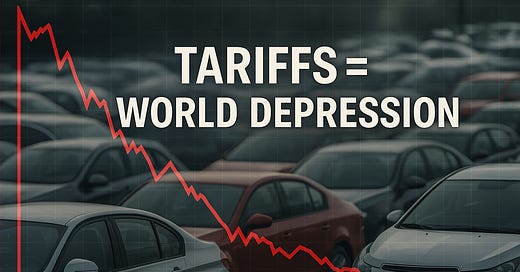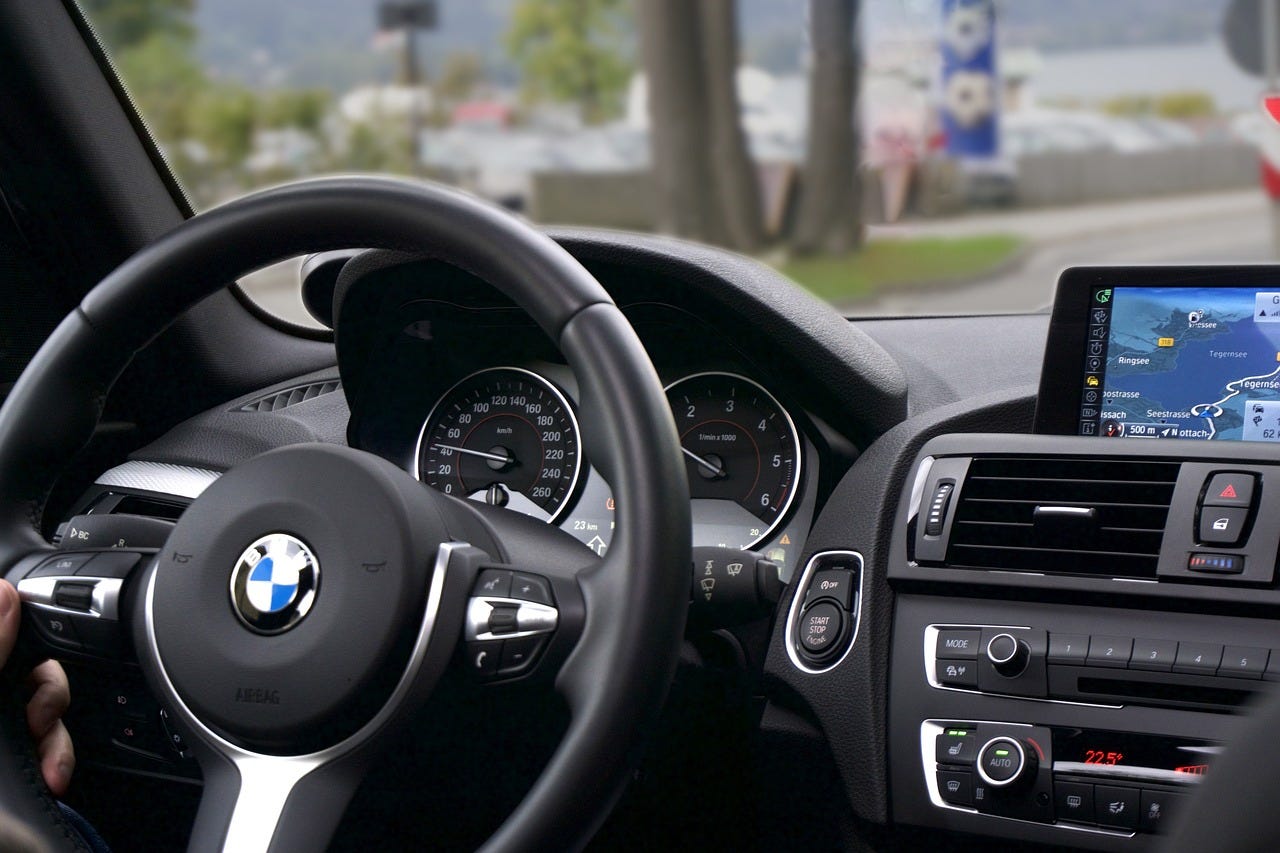How Trump's 25% Tariff Hike Is Driving Up Car Prices for American Buyers
A look at how new U.S. car import tariffs hurt consumers, benefit billionaires, and shake global markets.
Yesterday in the UK, Chancellor of the Exchequer, Rachel Reeves, presented the government’s budget. Sorry, make that the rebadged “spring statement”.
In the statement, Reeves set out her vision for the financial health and wealth of the nation. It isn’t pretty reading and seems to aimed at taking away money from those towards the bottom of the money chain.
This has been discussed extensively in the British mainstream media over the past 24 hours, so I won’t go into the minute details. Here is the take from BBC News.
A few hours after Rachel Reeves sat down on the green benches of the House of Commons, her calculations were blown out of the water by a man sitting behind a desk in oval shaped office in Washington.
Donald Trump, yesterday, announced a 25% tariff on imports to the US on cars and other vehicles, along with car parts. This affects the import of a car, or parts, from any country in the world. And it starts on Tuesday.
In less than one weeks time, the importation of a car or car parts into the United States will be subjected to a 25% tariff. For tariff, read “a tax on every American who buys or runs a car.”
What is slightly frightening, is the average American consumer has been led by Donald Trump, to believe that the tariffs are imposed on the countries sending goods to the United States. This is false.
Let’s run through what really happens and why anyone in America is about to find life has become significantly more expensive.
For example, car manufacturer BMW builds a car in Germany and exports it to the USA. The car arrives by ship at the port into the hands of the importer in the US, and paperwork is presented to customs to clear entry.
“Oh no,” says customs - “there is a 25% tariff on this BMW - pay up now, then you can take the car.” The importer pays across 25% on the value of the car and also, the cost of shipping from Germany, as that part is charged as a tariff too. All before the car can leave the port.
The importer sells the car to, say, the local BMW specialist franchise holder in Portland OR. As the importer has paid a 25% tariff on the car, they charge the local dealer up to 25% more for the car, than they did for the same car last week.
The dealer offers the car to you, the private buyer, seeking a shiny new BMW. However, with the additional 25% tariff paid for importing the car, the price of the car has risen by several THOUSAND dollars.
If the private buyer parts with their cash for the BMW, they have paid a lot more than they would have done a few days before. Alternatively, the buyer walks away and decides to keep their old car for another year or more.
The BMW specialist dealer now has an expensive unwanted car sitting on their frontage, unsold. The same happens to the other BMWs they have imported. Nothing is sold and the dealer goes bust.
According to Donald Trump, this is great for America and he loves tariffs. Why? Because the 25% tariff is a tax and goes straight to the government.
Let’s take a look at what has happened to car manufacturers stock market prices since Trump’s 25% tariff announcement on Wednesday. They are down.
Toyota in Japan is down by 2.5%. German manufacturer Mercedes Benz slumped by more than 3% in Thursday trading.
Trump has said that the 25% car tariff, due on 2 April, will not be reversed under any circumstances. He has said this about tariffs on some other products, and then reversed or delayed them. What could happen to the car stock market if he does change his mind? When share prices drop, hedge funds and investors buy before they go back up.
What are the odds, that billionaire investors are waiting for a sniff that Trump will delay or reverse the 25% tariff? When the smell the time is right, they will buy shares at their now lower price. Trump then reverses or change the tariff and the shares rocket. Lots of lovely profit for the billionaires - again.
In the United Kingdom, chancellor Rachel Reeves will be watching carefully and will be part of the decision on imposing similar tariffs on the importation of American cars into the UK. Her counterparts across Europe, in Japan, China, South Korea, Mexico, Canada and elsewhere will be doing the same calculations.
Meanwhile, the man in the Oval Office continues to say how wonderful tariffs are, and how great they are for the US economy.
Tell that to the prospective car buyer in Portland, who was just asked to find somewhere between $4,000 and $12,000 for that new BMW.
At what point will Americans wake up to the fact that the word ”tariff” means ”the government is taxing me, personally”?




